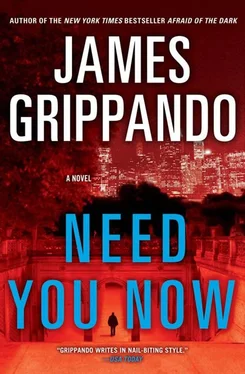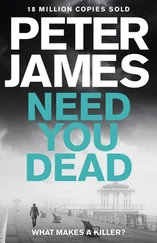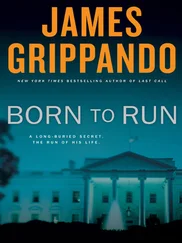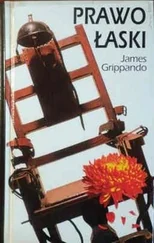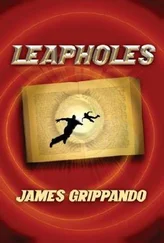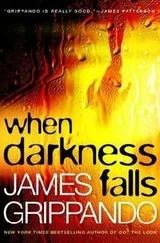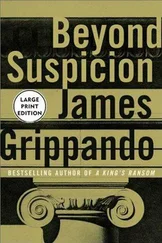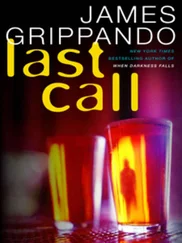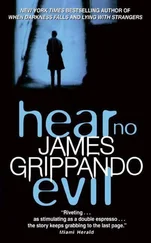“Which hotel?” the driver asked in Spanish.
“Hotel Hamburg.”
“Hamburg, sí ,” he said, chuckling. The German name was a bit of a running joke among some of the locals. Ciudad del Este drew a wide range of Hispanics and native South Americans from neighboring countries, and it was home to sizable Muslim, Japanese, Taiwanese, and Korean communities. Few of them realized that the first Western settlers in nearby Colonia Independencia were retired German military from World War I-which explained the disproportionate number of places in the region with names like “Hotel Hamburg” or “Restaurante de Munich.” Robledo understood that bit of history, and not just because he’d grown up in the area. Café Berlin was where he had first met Niklas Konig, the German investor who had later introduced him to Gerry Collins.
I’d shoot him again if I could.
The SUV stopped in front of the hotel, and Robledo stepped out. His goal on every trip was to keep a low profile. A thirty-dollar-per-night flophouse like Hotel Hamburg blended right in with the fume-filled traffic jams and bazaarlike shops on Avenida Monseñor Rodríguez, the main drag in the center of town. From there, another five thousand shops fanned out in all directions for a twenty-block area.
Robledo’s only luggage was an overnight bag, which must have seemed odd to the late-night attendant behind the registration desk. Guests often checked into the hotel with a half dozen or more empty suitcases, leaving the next day with their take. Cheap electronics equipment and cigarettes were popular items, but only for the casual buyer. Little or no luggage was a sign of a serious player with a serious agenda-cash for weapons, sex, sex slaves, pirated software, counterfeit goods, cocaine by the ton, murder for hire, and just about everything else illegal-from phony passports to human body parts for medical transplants. Delivery could be arranged for all of it. For a price.
Robledo picked up a room key, which came with a handwritten message: his contact was waiting across the street at the bar. He dropped his bag in his room and then followed the directions in his message to the Fugaki Bar.
Late January was the height of the summer rainy season. Even after midnight, the potholes in the street remained filled with the muddy remnants of the afternoon downpour. Some of the puddles were like sinkholes, seemingly big enough to swallow up everything from an unsuspecting tourist to a truckload of counterfeit Mont Blanc pens. Robledo stepped around them, passing a restaurant called Lebanon. It was a reminder that the Tri-Border Area was home to an estimated twenty-five thousand residents of Arab descent. Born and raised in Argentina, Robledo was often taken for Hispanic, and his Spanish was perfect. Not many people were aware that Robledo’s first language was actually Arabic.
Ironically, coming off as Hispanic had actually worked to his advantage in cultivating Lebanese wealth. Robledo was the golden boy who had found a way around Abe Cushman’s unspoken refusal to take Arab money. Robledo and his contact, Gerry Collins, had found a way to slide under Cushman’s radar and bring Saudis to the Cushman trough-investors with whom Cushman could never have done business without jeopardizing his stature in the Jewish American community, and without alienating the Jewish charities that would become his unwitting principal victims. For a time, Robledo’s Arab clients loved him.
Lately, not so much.
“I don’t like to be kept waiting,” said Fahid.
He spoke in English, their common tongue, as Fahid’s Arabic and Robledo’s Lebanese were not a perfect mesh. Fahid was a badass-in any language, any culture, any country. He was the spokesman for Robledo’s largest consortium of angry Saudi investors.
“I’m very sorry,” Robledo said as he took a seat on the barstool beside Fahid. “We had some difficulties getting over the bridge. The usual midnight chaos.”
Fahid tapped the rim of his shot glass. The bartender poured him a refill and also brought one for Robledo. They belted them back in unison. Robledo’s throat burned, and his eyes hurt. He wasn’t sure exactly what it was, but it must have been the drink of choice for the guy who had coined the word firewater . It was bad enough that the Fugaki had no air-conditioning. The liquor had Robledo’s face glistening with sweat, and the conversation had not even started.
Fahid said, “That ‘chaos,’ as you call it, pays the light bill.”
“My apologies,” Robledo said. “Chaos was a poor choice of words. I meant ‘business.’ ”
Big business. The official GDP of Paraguay was about $17 billion. The money moved illegally through banks in Ciudad del Este on an annual basis was estimated to be at least double that amount, much of it connected to hawalas . There was another $14 billion in black market trading of goods, from cigarettes to counterfeit designer watches. Fahid and his consortium held a 10 percent share, mostly in smuggling. Simple math dictated that the $2 billion Robledo had lost in the Cushman Ponzi scheme-the pipeline from Gerry Collins in Miami, through Lilly Scanlon at BOS/Singapore, to Cushman Investment in New York-was the financial equivalent of flushing months of profit down the toilet.
“I reviewed your latest videotape from the church,” said Fahid. “Very impressive operation you are building.”
“Thank you. Our computers should be targeting potential recruits by the end of the month.”
“Not much good if there’s no money to train them.”
“I hear you.”
“No. You’re still hearing the message I delivered six months ago-that our patience is coming to an end. The message is different now: our patience has ended.”
“You’re putting me in an impossible situation.”
“You put yourself there.”
“No. This was not my fault.”
“Are you suggesting it was my fault?”
“Not at all.”
“Don’t blame this on Abe Cushman and Gerry Collins. You were the one who put our money with them.”
“I accept that,” said Robledo. “But, please, listen to me. I have scoured the earth for our money. I have applied force at every conceivable pressure point. After three years, I am convinced that there is more at work here than Cushman’s Ponzi scheme. There is a much bigger reason for our losses. I beg you to make the consortium understand that this was not within my control.”
Fahid looked at him like a judge about to pronounce sentence. Finally, he gave another tap to the rim of his shot glass. The bartender poured refills, which Robledo took to mean that he had another minute or two of Fahid’s time.
“This may sound crazy,” said Robledo, “but it is my firm conclusion that we lost our money because the U.S. government wanted us to lose it.”
Fahid stared at him for a moment. Then he burst out in laughter. Laughed so hard that he nearly fell off his stool.
“I’m serious,” said Robledo. He removed Evan Hunt’s report from the inside pocket of his blazer and laid it on the bar, which brought Fahid’s laughter under control.
“What’s this?” asked Fahid.
“An analysis of thirty-eight reasons why Abe Cushman was a fraud. A friend of Tony Mandretti prepared it years before Cushman blew up. Mandretti gave it to me before I met with Collins.”
“Does Mandretti’s friend work for the government?”
“No. But if some quant in Chinatown was able to come up with this, can anyone seriously believe that the federal regulators were unaware?”
Fahid took a moment to absorb what was said. “So they knew.”
“Yes, they knew,” said Robledo. “It’s my belief that they took that knowledge and cut a deal with Gerry Collins. They could have promised him anything from a reduced sentence to better food in the federal penitentiary he was headed for. I don’t know what he got. But it’s clear to me what Collins gave them: us . Collins and his friend with the boat in Miami-Mr. Konig, whom I took care of personally-lured me into the scheme just in time for us to lose two billion dollars.”
Читать дальше
